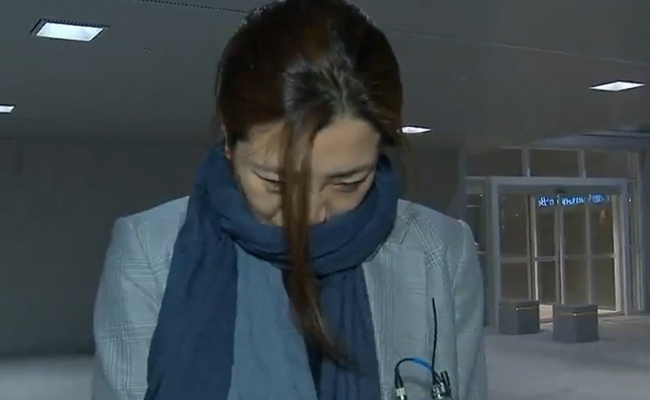Korean Air heiress incident sparks interest in ‘behavior disorder’
By Catherine ChungPublished : April 17, 2018 - 15:27
Following the controversy surrounding Korean Air Senior Vice President Cho Hyun-min and her alleged verbal abuse on an advertising agency manager last month, the public interest in intermittent explosive disorder has substantially heightened.
The 35-year-old senior executive is accused of yelling and throwing a cup of water towards the manager during a meeting last month.
Cho claimed on Monday to have only given a “shove” after the employee did not give proper answers to her questions. She has denied, however, throwing the cup of water at the employee.
According to the American Psychiatric Association’s Diagnostic and Statistical Manual, intermittent explosive disorder is a behavioral disorder characterized by “recurrent behavioral outbursts representing a failure to control aggressive impulses.”
A Health Insurance Review and Assessment Service official said on Tuesday that there has been a constant rise in the number of patients seeking impulsive behavioral disorder treatment in the country in the past three years.
The 35-year-old senior executive is accused of yelling and throwing a cup of water towards the manager during a meeting last month.
Cho claimed on Monday to have only given a “shove” after the employee did not give proper answers to her questions. She has denied, however, throwing the cup of water at the employee.
According to the American Psychiatric Association’s Diagnostic and Statistical Manual, intermittent explosive disorder is a behavioral disorder characterized by “recurrent behavioral outbursts representing a failure to control aggressive impulses.”
A Health Insurance Review and Assessment Service official said on Tuesday that there has been a constant rise in the number of patients seeking impulsive behavioral disorder treatment in the country in the past three years.

Specifically, 5,390 patients in 2015, 5,920 patients in 2016 and 5,986 patients last year sought out treatment for the disorder.
The impulsive behaviors that one cannot control and thus act upon can be harmful to oneself and others. The intermittent explosive disorder is the most prevalent form among behavioral disorders.
Patients, who suffer from the anger-specific disorder, are said to experience difficulty forming healthy relationships with others due to excessive suspicion, aggression and hostility.
When extreme anger takes over the patient, the brain’s sympathetic nerves fail to function, thereby leading to dysregulated emotion and outbursts.
IED patients reportedly feel less anxious and satisfied after having violent outbursts. Thus, they reportedly lack any regret or guilt over their behavior and its harmful consequences.
In Korea, the number of male patients with anger management issues was overwhelmingly high, specifically 83.9 percent of patients, last year.
Health authorities further pointed out that the disorder affected young adults the most with 29 percent of patients being in their 20s, followed by 20 percent of patients in their 30s. Only eight percent of patients were in their 50s, the HIRA said.
The disorder can emerge due to many factors including stress, alcoholism, frontotemporal dementia, cerebrovascular disease and personality disorder.
In households where parents have impulse control issues due to domestic violence and alcoholism, there has been many cited case studies, where children grow up to suffer from similar impulsive behaviors.
The nation’s health agency recommends people to conduct a self-assessment for the disorder and highlighted the necessity for increased awareness for the disorder.
By Catherine Chung (cec82@heraldcorp.com)


















![[Today’s K-pop] Treasure to publish magazine for debut anniversary](http://res.heraldm.com/phpwas/restmb_idxmake.php?idx=642&simg=/content/image/2024/07/26/20240726050551_0.jpg&u=)